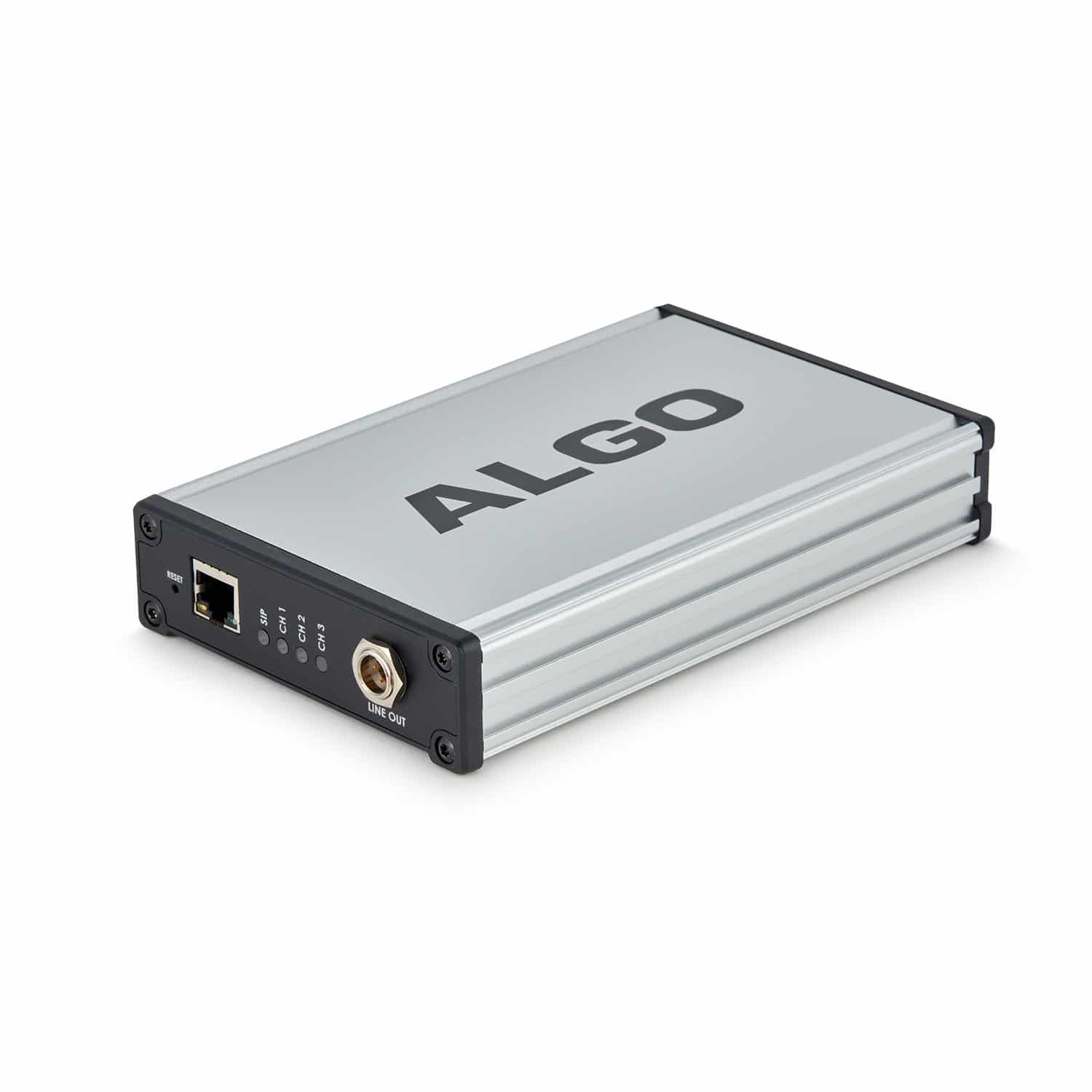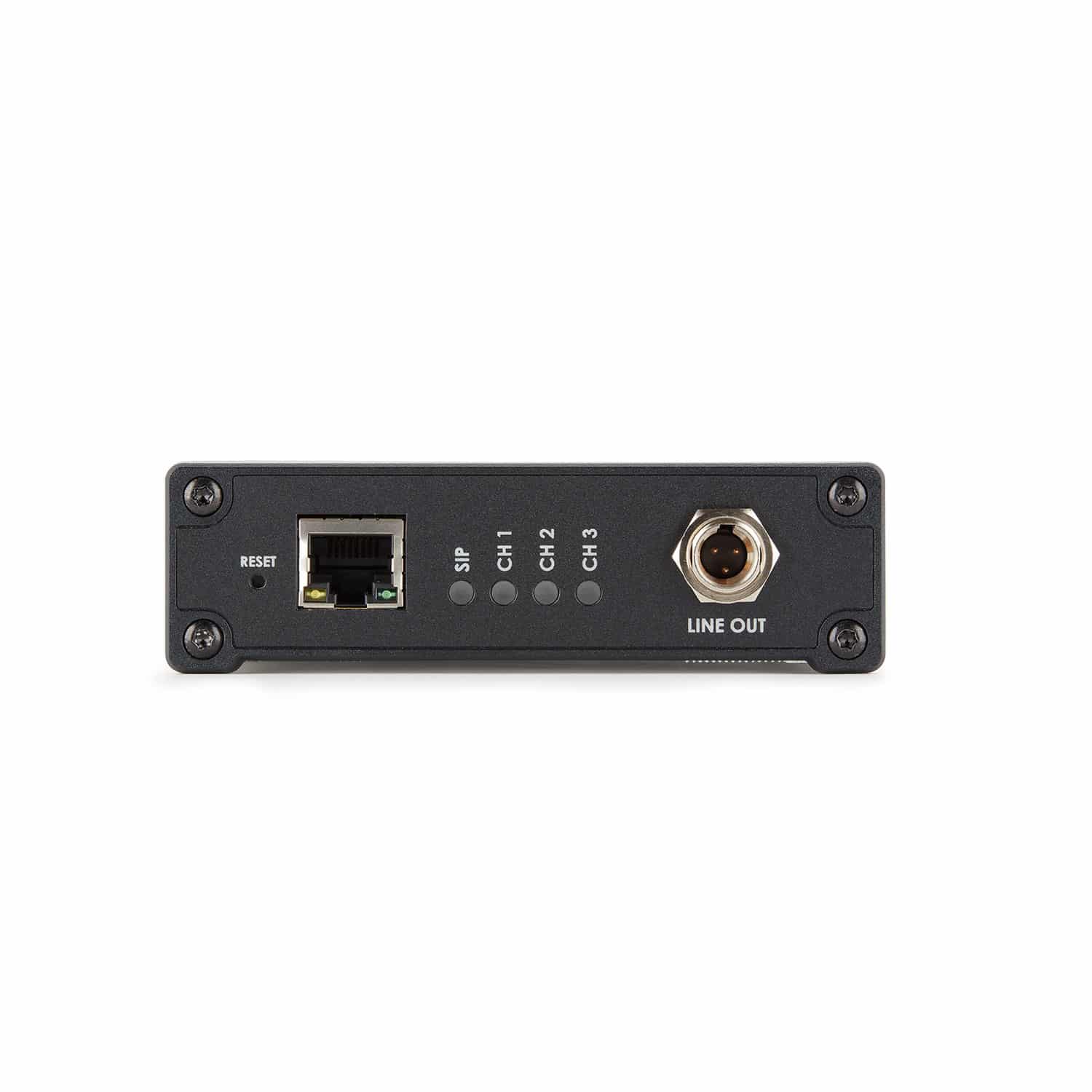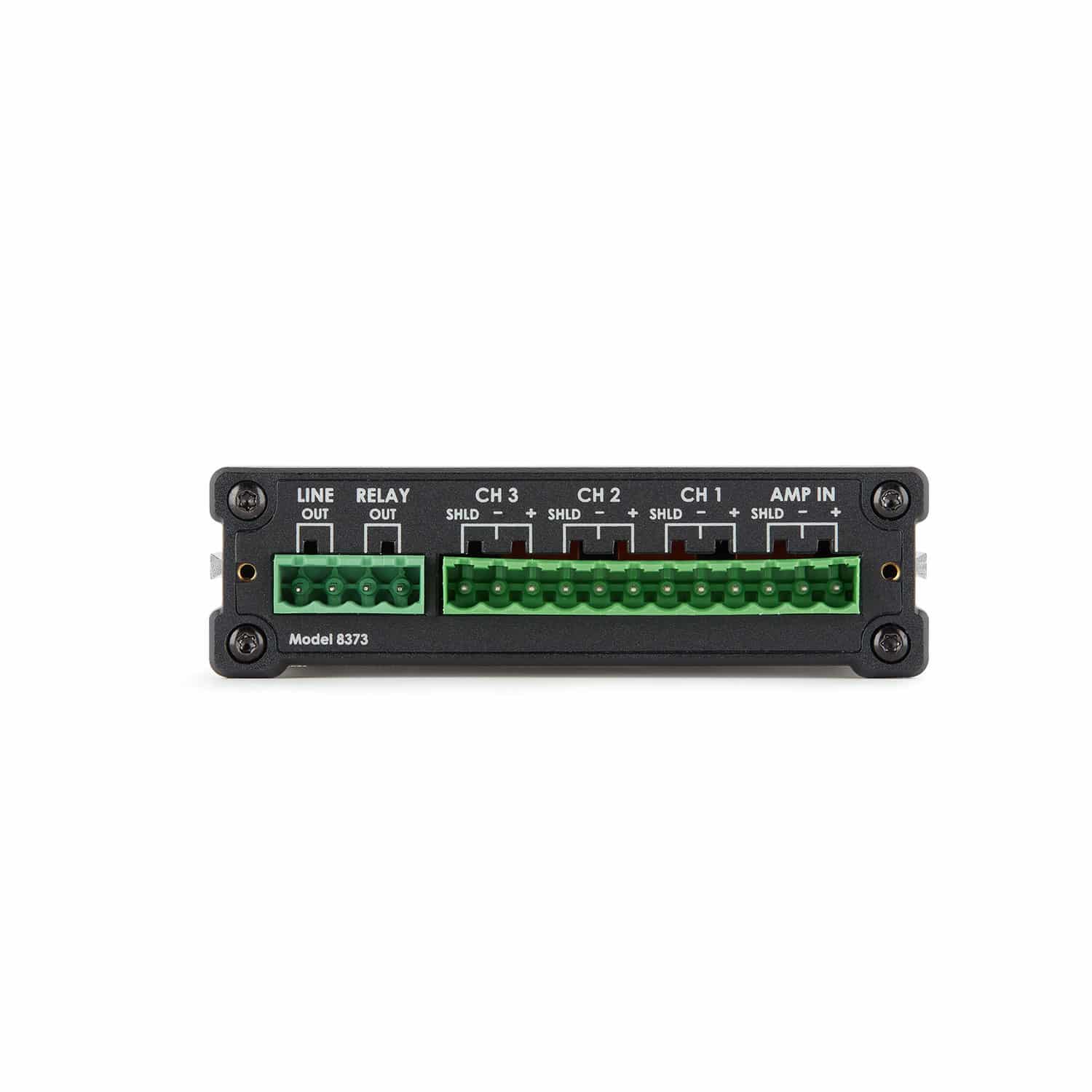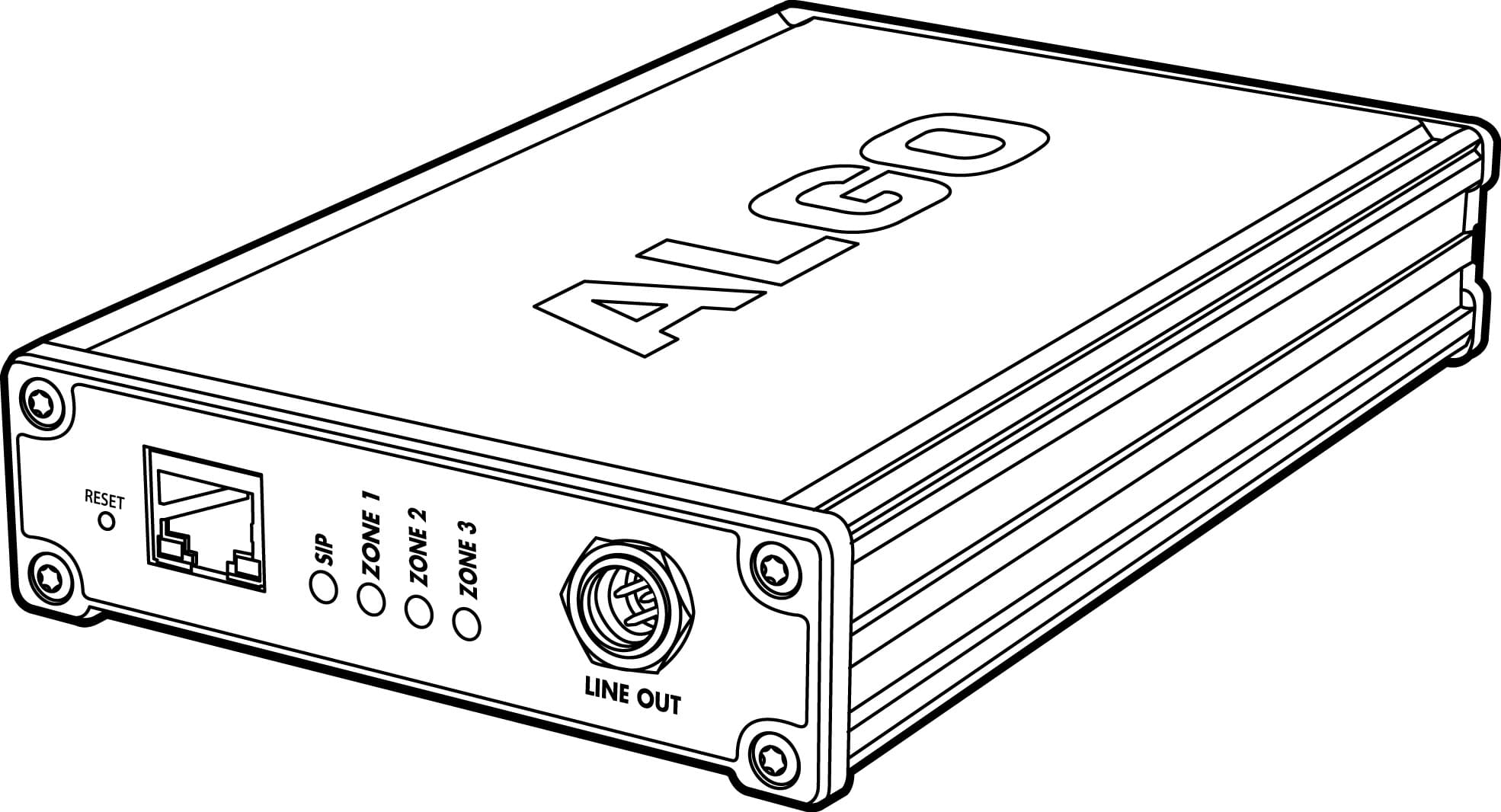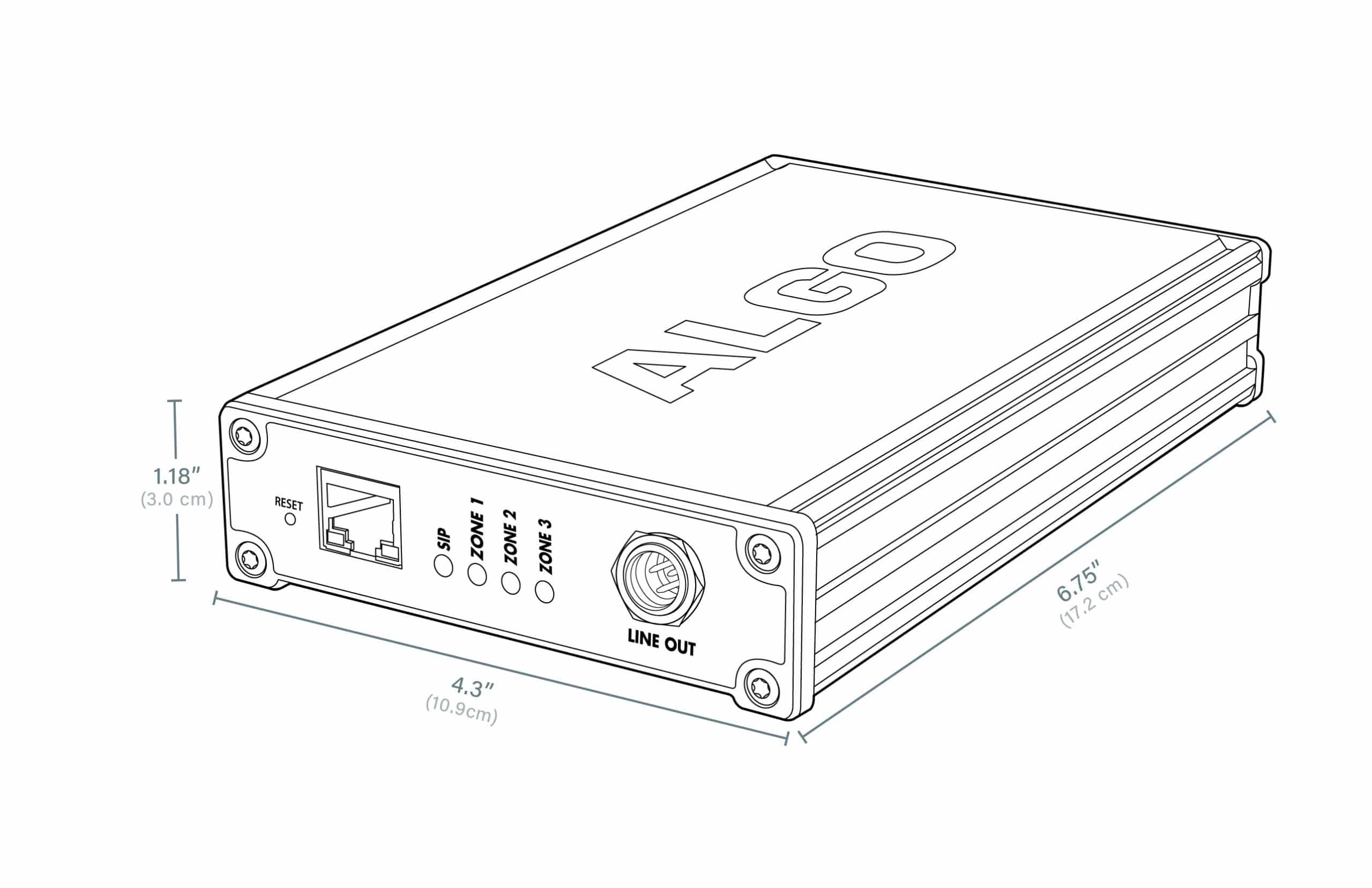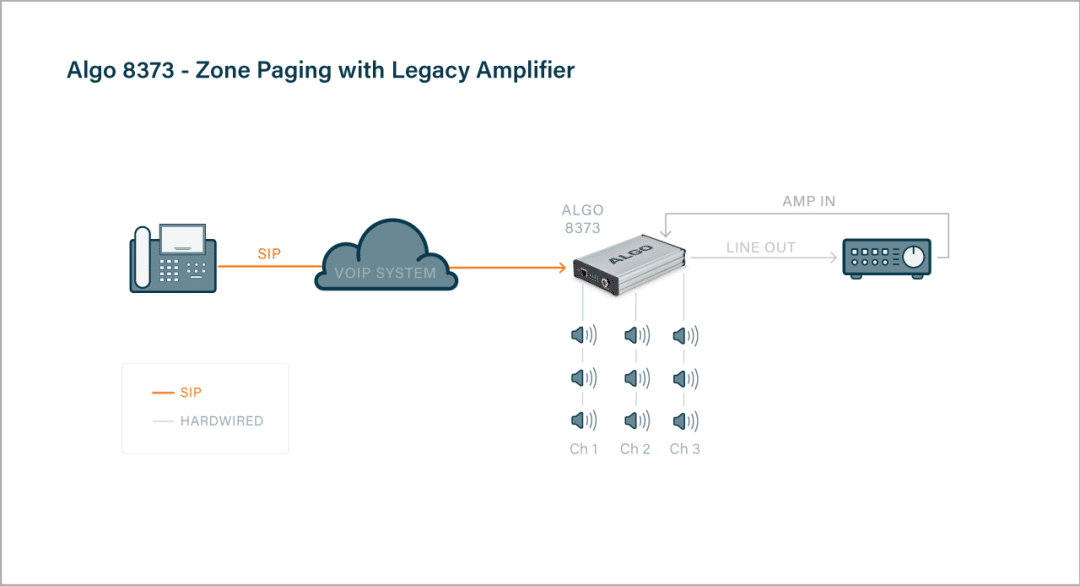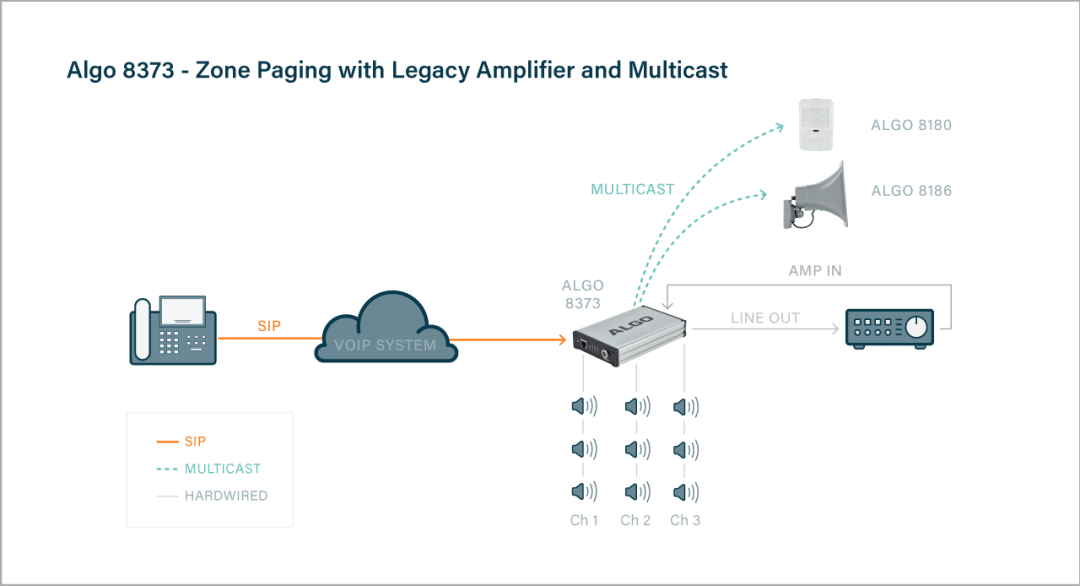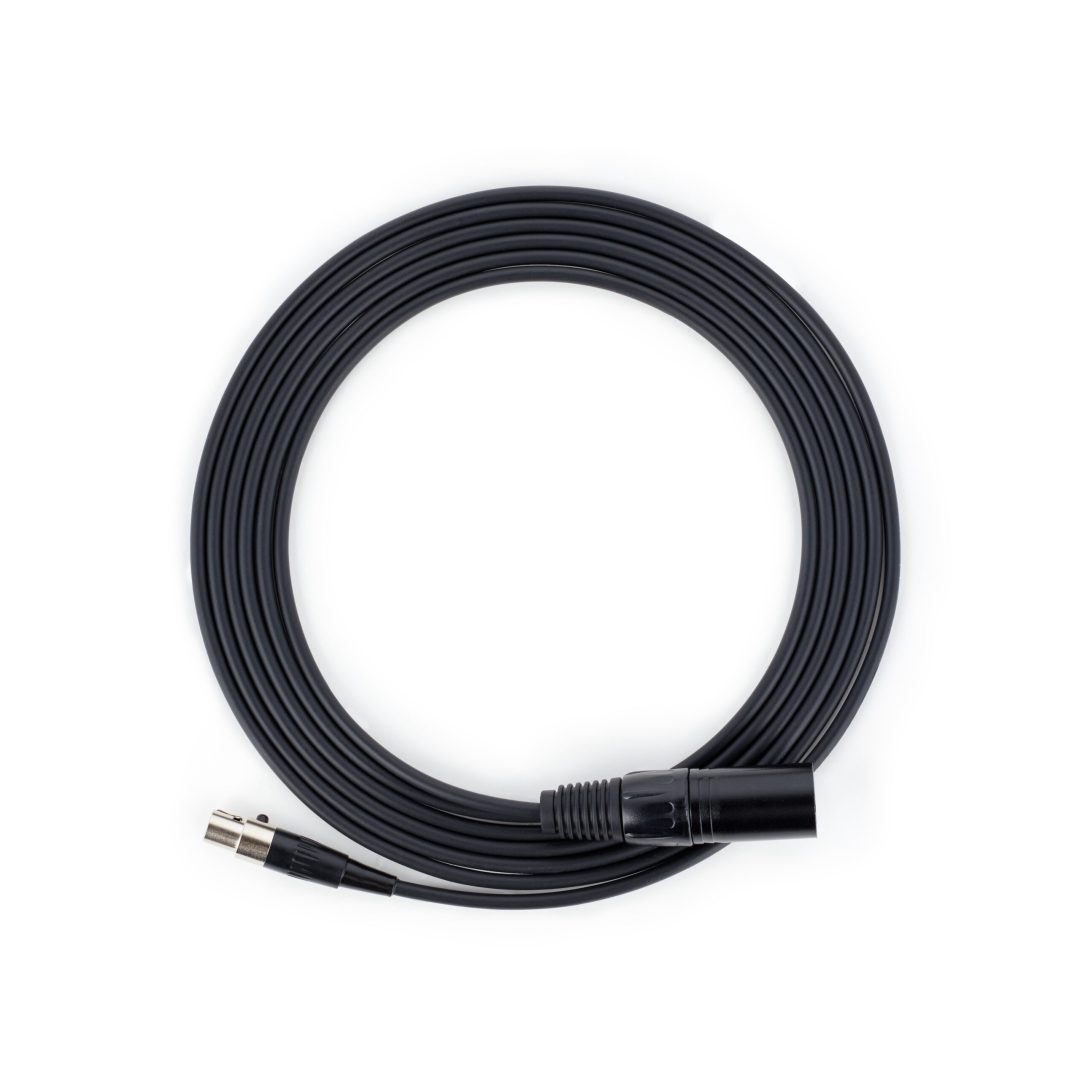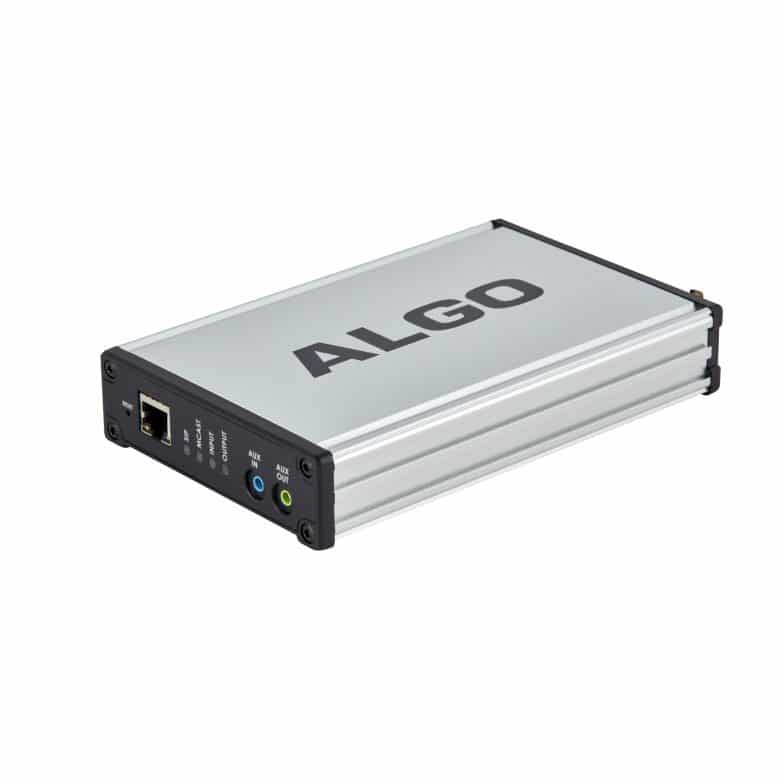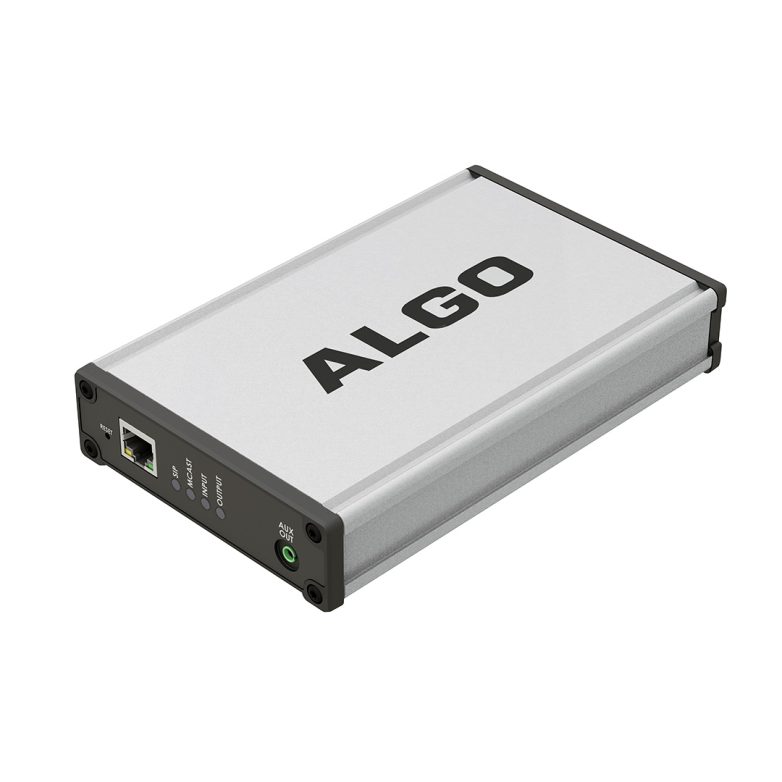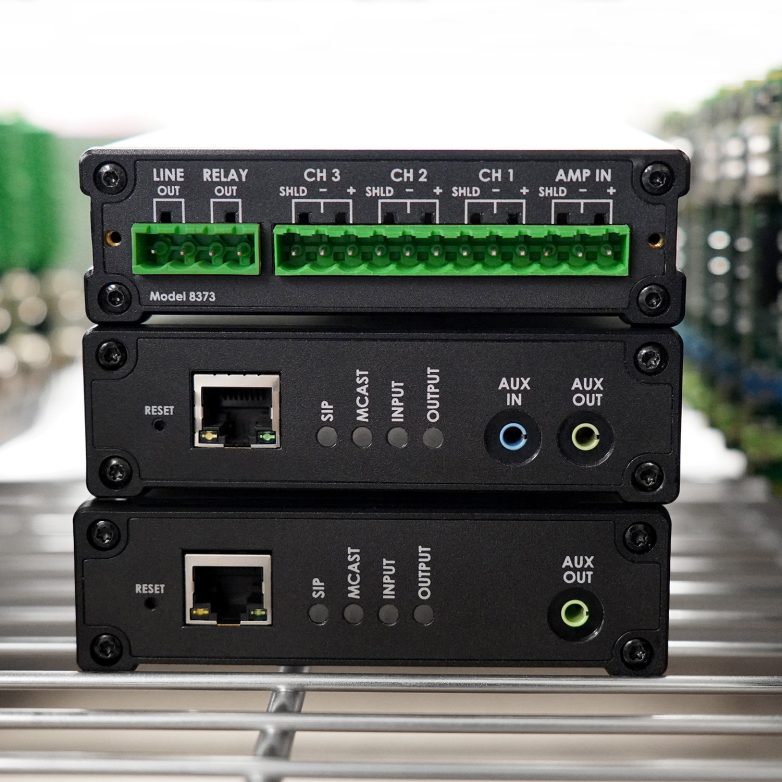Description
Seamless IP Interface to Analog PA Systems
The 8373 IP paging adapter emulates a page port, similar to what is found on a legacy PBX or key system. The adapter connects directly to a traditional analog amplifier, thereby offering a simple and easy interface to a VoIP phone system as a SIP extension and multicast endpoint.
Wideband G.722 HD voice codec is supported in the 8373. Consequently, there is high intelligibility and clarity of audio from the paging adapter for IP paging of voice announcements and emergency notification. The isolated and balanced line output of the 8373 ensures there is no hum or noise.
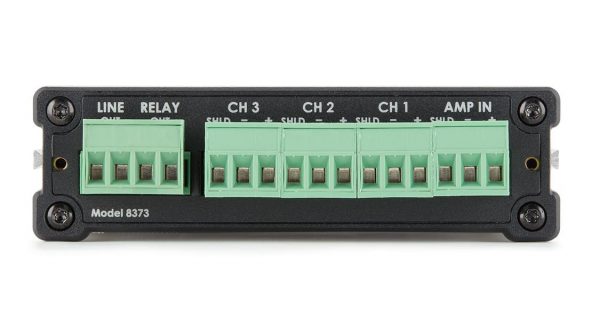
The line output one the paging adapter provides a dry audio output for any amplifier with input impedance between 600 Ohm and 10 kOhm, where the line output of the paging adapter can be defined to match the input specification of the amplifier. This means most amplifiers are supported by the 8373. Either XLR connector or terminal block is available from the paging for easy connection to an amplifier. A dry contact closure to activate the amplifier is also available, if required.
Zone Controller
The 8373 has three (3) separate speaker zones using high current internal zone control relays. The zone control relays are activated based on the SIP extension called, multicast IP address received, or telephone DTMF keypad input. For scalability, multiple 8373 Paging Adapters can be used to support as many page zones as required from a single amplifier. Please note, however, one 8373 adapter can switch up to 500W from a single 70V amplifier or 720W on a single 100V amplifier.
No ATA Required
For amplifiers connected to an FXS port or ATA through a ‘telephone answering device’, the 8373 IP paging adapter will replace the answering device and eliminate the need for an FXS port or analog terminal adapter (ATA).
The 8373 paging adapter is only recommended to connect to a single zoned amplifier. If the amplifier is not zoned and is only being used as a single zone the 8301 paging adapter is recommended.
Where multiple amplifiers are used, one paging adapter is bridged to each amplifier. Multicast can be configured to stream audio to individual page zones or to any combination as required (e.g., all call page zone).
What is the difference between an Algo 8373 vs 8301 paging adapter?
SIP Extensions for Voice Paging
Fifty (50) Page extension SIP registrations are available in the 8373 adapter. When the Page extension is called the 8373 will auto-answer allowing for public address (PA) voice announcements from the telephone. For user convenience, an extension can be mapped to each of the zone outputs on the paging adapter, allowing for immediate voice paging to the desired zone. Alternatively, zones may be selected using a DTMF option from the telephone keypad by calling a single Page extension.
Scale Algo IP Paging Speakers Over Any Size Building or Campus
The 8373 IP paging adapter supports multicast send or receive. A single registered paging adapter can be configured to multicast to any number and mix of Algo IP speakers, strobe lights, paging adapters and multicast supported IP telephones. Multicast can also be mapped to a specific zone on the 8373 or any combination of zones.
A deployment to cover any size building, campus (e.g., classrooms in a school, college or university) or enterprise is possible using multicast. There is no limit to the number of devices part of a multicast, and a minimum of network traffic activity is utilized.
Multicast provides cost effective scalability using a minimum of SIP registered endpoints, as only the endpoint designated to send the multicast needs to be registered. Devices configured to receive the multicast do not need registration.
Support is available for RTP multicast, in addition to Polycom Group Page.
Multicast Zone Paging
Multicast zone paging for up to 50 zones can be configured from a single 8373 paging adapter. Zones can be selected one of two ways. One option is to map multicast page zones to individual SIP extensions on the adapter. Fifty (50) page extensions are available for this purpose. Alternatively, in order to minimize SIP registrations, multicast page zones can be configured in the paging adapter as a DTMF key press selection using the dial pad of telephone making the page call.
Note: Additional page zones can be configured by registering individual Algo IP speakers for specific room paging (e.g. school classroom). Speakers with SIP registrations can also be configured to be a member / receiver of multicast zones.
To sum up, the 8373 SIP Zone Paging Adapter is designed to bridge a VoIP telephone system to a traditional analog zoned amplifier for public address (PA). Three (3) zone outputs are available. The endpoint is powered via PoE (IEEE 802.3af). Wall mount brackets are included for easy installation. The product is CSA/UL, FCC and CE certified.
Benefits of the PoE Algo SIP Zone Paging Adapter
- Excellent Wideband audio clarity and intelligibility with direct connectivity to an amplifier for a seamless VoIP integration.
- Network managed and supervised SIP and multicast endpoint.
- Three zone outputs expandable using multicast.
- PoE (IEEE 802.3af) eliminates need for local power supply, and simplifies wiring infrastructure and management.
- Eliminates legacy zone controller and narrowband FXS port or ATA and telephone answering device hardware.
- Easily combine with other Algo IP endpoints for a comprehensive public address (PA) system to support voice paging, emergency alerting, night bell / loud ringing, bell scheduler and playing music.
